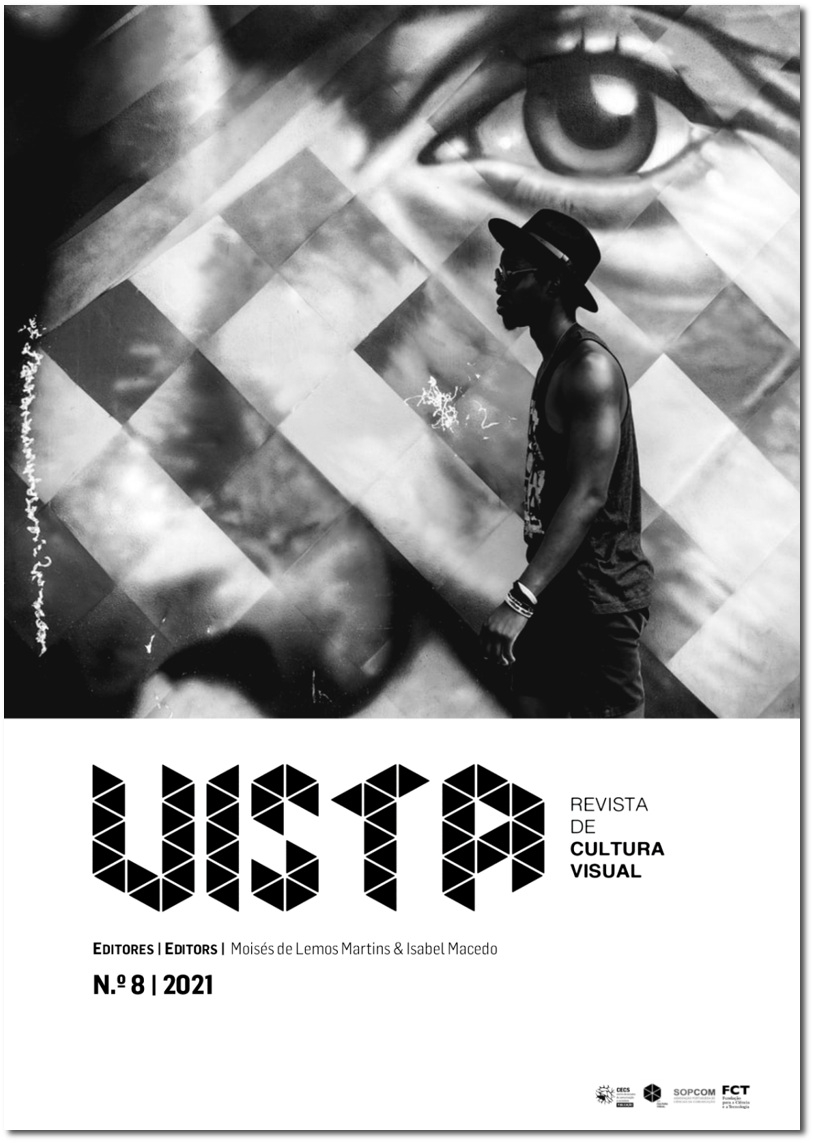"Who Wants to Be Erased?" Images of Women in History Textbooks in Mozambican Education
DOI:
https://doi.org/10.21814/vista.3517Keywords:
Mozambique, history education, cultural memory, decoloniality, (in)visibilitiesAbstract
In this article, we discuss how women are portrayed in the current history textbooks of the general secondary education in Mozambique: what is the place of women in the history of Mozambique? Which women have a name, a face or a voice in the textbooks? How is women historical agency described? To answer these questions, we conducted a synchronic, multimodal and comparative analysis of how the history textbooks of 11th and 12th grades portray women. The analysis reveals profound asymmetries in the gender representations, both regarding the teaching content and the sources and iconography. The textbooks provide a historiographical framework based on male leadership while women appear confined to traditional gender roles, with rare exceptions. In light of the scarcity of studies concerning gender representations, intersectionality and history education in Mozambique, we analyse how text and image contribute to the erasure of women's agency in history textbooks. We pay particular attention to the pictures of women and discuss images' potential for combating sexism and decolonising knowledge.
Downloads
References
Basílio, G. (2012). O currículo local nas escolas moçambicanas: Estratégias epistemológicas e metodológicas de construção de saberes locais. Educação & Fronteiras, 2(5), 79–97. https://ojs.ufgd.edu.br/index.php/educacao/article/view/2149
Cabaço, J. (2007). Moçambique: Identidades, colonialismo e libertação [Tese de doutoramento, Universidade de São Paulo]. Biblioteca Digital USP. https://doi.org/10.11606/T.8.2007.tde-05122007-151059
Cabecinhas, R. (2018). Quem quer ser apagada? Memória coletiva e assimetria simbólica. In J. M. Oliveira & C. Nogueira (Eds.), Lígia Amâncio: O género como ação sobre o mundo (pp. 113–132). CIS-IUL.
Cabecinhas, R., Jamal, C., Sá, A., & Macedo, I. (2021). Colonialism and liberation struggle in Mozambican history textbooks: A diachronic analysis. In I. Brescó & F. van Alphen (Eds.), Reproducing, rethinking, resisting national narratives. A sociocultural approach to schematic narrative templates (pp. 37–57). Information Age Publishing.
Cabecinhas, R., Macedo, I., Jamal, C., & Sá, A. (2018). Representations of European colonialism, African resistance and liberation struggles in Mozambican history curricula and textbooks. In K. van Nieuwenhuyse & J. P. Valentim (Eds.), The colonial past in history textbooks. Historical and social psychological perspectives (pp. 217–237). Information Age Publishing.
Cabecinhas, R., & Mapera, M. (2020). Decolonising images? The liberation script in Mozambican History textbooks. Yesterday and Today, 24, 1–27. https://doi.org/10.17159/2223-0386/2020/n24a1
Cajani, L., Lässig, S., & Repoussi, M. (Eds.). (2019). The Palgrave handbook of conflict and history education in the post-Cold War era. Palgrave Macmillan.
Carretero, M., Berger, S., & Grever, M. (Eds.). (2017). Palgrave handbook of research in historical culture and education. Palgrave Macmillan.
Casimiro, I. (2004). Paz na terra, guerra em casa: Feminismo e organização de mulher em Moçambique. Promédia.
Castiano, J. P. (2019). Os tempos da educação em Moçambique. In J. P. Castiano, R. Raboco, D. P. Pereira, S. Muianga, & M. J. Morais (Eds.), Moçambique neoliberal. Perspectivas críticas teóricas e da práxis (pp. 275–279). Editora Educar; Ethale Publishing.
Chiponda, A., & Wassermann, J. (2015). An analysis of the visual portrayal of women in junior secondary Malawian school history textbooks. Yesterday & Today, 14, 208–237. https://doi.org/10.17159/2223-0386/2015/nl4a9
Coelho, J. P. B. (2013). Politics and contemporary history in Mozambique: A set of epistemological notes. Kronos, 39(1), 20–31.
Costa, A. (2019, 4 de março). Bertina ou a arte de Bertina: Mudar e permanecer. Buala. https://www.buala.org/pt/cara-a-cara/bertina-ou-a-arte-de-bertina-mudar-e-permanecer-0
Costa, A. (2020, 27 de fevereiro). Reinata Sadimba. Buala. https://www.buala.org/pt/cara-a-cara/reinata-sadimba
Fardon, J., & Schoeman, S. (2010). A feminist post-structuralist analysis of an exemplar South African school history text. South African Journal of Education, 30(2), 307–323. https://doi.org/10.15700/SAJE.V30N2A333
Hayes, P. (2005). Introduction: Visual genders. Gender & History, 17(3), 519–537.
Ide, T., Kirchheimer, J., & Bentrovato, D. (2018). School textbooks, peace and conflict: An introduction. Global Change, Peace & Security, 30(3), 287–294. https://doi.org/10.1080/14781158.2018.1505717
Instituto Nacional de Desenvolvimento da Educação. (2010a). História, programa da 11ª classe. Diname.
Instituto Nacional de Desenvolvimento da Educação. (2010b). História, programa da 12ª classe. Diname.
Jamal, C. M. (2019). Representações do colonialismo nos manuais escolares de História do 1º ciclo do ensino secundário geral no período pós-independência em Moçambique [Tese de doutoramento, Universidade do Minho]. RepositóriUM. http://hdl.handle.net/1822/66902
Jodelet, D. (1991). Mémoire de masse: Le côté moral et affectif de l’histoire. Bulletin de psychologie, 45, 239–256.
Khan, S., Meneses, M. P., & Bertelsen, B. (Eds.). (2019). Mozambique on the move. Challenges and reflections. AEGIS.
Laisse, S. (2020). Letras e palavras: Convivência entre culturas na literatura moçambicana. Escolar Editora.
Lei n.º 4/83, de 23 de março, Boletim da República, I Série – Número 2. (1983).
Lei n.º 6/92, de 6 de maio, Boletim da República, I Série – Número 19. (1992).
Lorenz, C. (2017). ‘The times they are a-changin’. On time, space and periodization in history. In M. Carretero, S. Berger, & M. Grever (Eds.), Palgrave handbook of research in historical culture and education (pp.109–132). Palgrave Macmillan. https://doi.org/10.1057/978-1-137-52908-4_6
Machel, S. (1973). A libertação da mulher é uma necessidade fundamental da revolução. Tempo, 287, 47–50.
Mazula, B. (1995). Educação, cultura e ideologia em Moçambique: 1975-1985. Afrontamento.
Meneses, M. P. (2017). Autodeterminação em Moçambique: Joana Semião, entre a história oficial e as memórias de luta. In I. Mata (Ed.), Discursos memoralistas africanos e a construção da história (pp. 49–78). Colibri.
Mignolo, W. D., & Walsh, C. E. (2018). On decoloniality: Concepts, analytics, praxis. Duke University Press.
Mueio, T. (2019). Abordagem do tema transversal género e equidade na disciplina de português, 10ª classe. In C. Maciel (Ed.), Educação em género (pp. 61–83). Centro de Estudos Interdisciplinares de Comunicação.
Ngomane, N. (2012, 6 de janeiro). Quem quer ser apagado? Sol, p. 24.
Nhapulo, J. (2019). História 12ª classe. Plural Editores.
Nhapulo, J., & Cumbe, G. (2015). História 11ª classe. Plural Editores.
Nora, P. (1989). Between memory and history. Les lieux de mémoire. Representations, 26, 7–24.
Pereira, A. C., Sales, M., & Cabecinhas, R. (2020). (In)visibilidades: Imagem e racismo. Vista, (6), 9–19. https://doi.org/10.21814/vista.3054
Pereira, D. M. P. (2021). Joana Semião, homo economicus e homo politicus: Urdindo uma epistemologia “tolerante” moçambicana. Ex æquo, 43, 165–181. https://doi.org/10.22355/exaequo.2021.43.11
Pollak, M. (1989). Memória, esquecimento, silêncio. Revista Estudos Históricos, 2(3), 3–15.
Ribeiro, F. (2015). Educação e ensino de história em contextos coloniais e pós-coloniais. Mneme – Revista de Humanidades, 16(36), 27–53.
Santos, H., & Amâncio, L. (2016). Gender inequalities in highly qualified professions: A social psychologic analysis. Journal of Social and Political Psychology, 4(1), 427–443. https://doi.org/10.5964/jspp.v4i1.487
Schefer, R. (2016). Mueda, memória e massacre, de Ruy Guerra, o projeto cinematográfico moçambicano e as formas culturais do Planalto de Mueda. Comunicação e Sociedade, 29, 53–77. https://doi.org/10.17231/comsoc.29(2016).2408
Silva, C. (Ed.). (2013). Kulimando saberes: Viagens discursivas pela pedagogia, didática, comunicação, antropologia cultural, filosofia, espiritualidade, língua e literatura. Alcance Editores.
Vicente, F. (Ed.). (2014). O império da visão. Fotografia no contexto colonial português. Edições 70.
Vilhena, M. C. (1999). As mulheres do Gungunhana. Arquipélago História, 2(3), 407–416. http://hdl.handle.net/10400.3/289
Voz da Revolução. (1972). Voz da Revolução. Órgão oficial da Frente de Libertação de Moçambique (FRELIMO). Voz da Revolução, 14, 1–8.
Wertsch, J. V. (2002). Voices of collective remembering. Cambridge University Press.
Zimba, B. (Ed.). (2012). A mulher moçambicana na luta de libertação nacional: Memórias do destacamento feminino (Vol. 1). Centro de Pesquisa da Luta de libertação Libertação Nacional; Ministério dos Combatentes.
Downloads
Published
How to Cite
Issue
Section
License
Copyright (c) 2021 Rosa Cabecinhas, Sara Laisse

This work is licensed under a Creative Commons Attribution 4.0 International License.
Authors own the copyright, providing the journal with the right of first publication. The work is licensed under a Creative Commons Attribution 4.0 International License.













